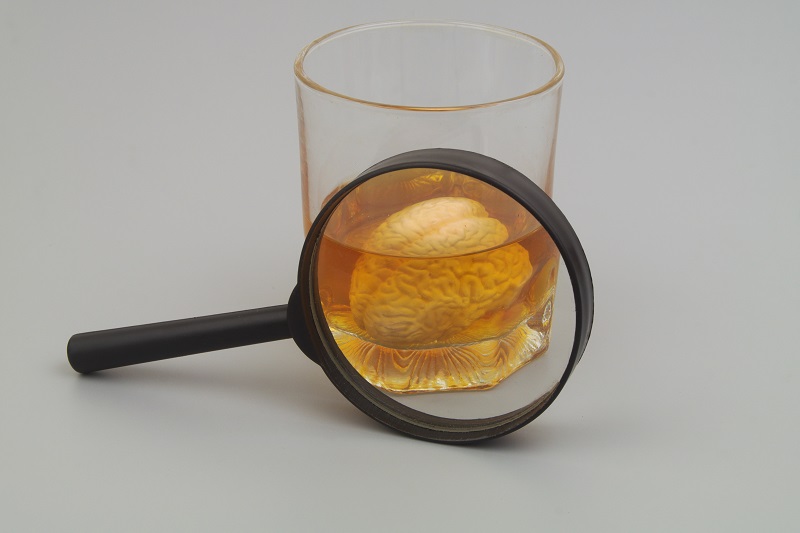Brain
How Does Alcohol Affect the Brain’s Psychology?
by Halya Thakur
Alcohol can alter how the brain functions and appears by interfering with the brain’s communication routes. There is an increased risk of injuries and other unfavorable consequences due to alcohol’s impairment of the brain regions responsible for balance, memory, speech, and judgment. Neural changes, including shrinkage, are brought on by prolonged heavy drinking. The main points we should know about alcohol and brain’s psychology are listed below.
First, alcohol reaches to your body.
Alcohol has immediate effects on the body. It enters your bloodstream after passing through the stomach lining. It then penetrates all of your body’s tissues. Within a few minutes of entering your brain, alcohol begins to have an impact on you.
Alcohol reaches your brain.
When you consume more alcohol than your body can process and metabolize, you get intoxicated. Although alcohol is absorbed by the entire body, the brain is the organ most affected. The communication routes in the brain are disrupted by alcohol. It may also have an impact on the way your brain interprets data.
Joy and exhilaration
Your brain releases more dopamine in the initial moments after drinking. Pleasure is associated with this chemical. Euphoria can make you feel at ease and self-assured. However, you might have mild cognitive impairment.
Excitement
Your brain’s frontal, temporal, and occipital lobes are all impacted by this degree of drunkenness. Drinking too much can result in adverse effects that are unique to the function of each lobe, such as loss of control, slurred speech and hearing, and impaired vision. The processing of sensory data by the parietal lobe is also impacted. Your reaction speed may be slowed down and your fine motor skills may be lost. Emotional fluctuations, poor judgment, and even nausea or vomiting are common symptoms of this period.
The Long-Term Impact of Alcohol Abuse
Overindulgence in alcohol use might eventually result in mental health issues, including anxiety and sadness. Abuse of alcohol can lead to serious and potentially irreversible brain damage, as well as an increased risk of some malignancies.
Regular drinkers could also observe that alcohol no longer has the same impact on them as it once did. With chronic drinking, the wiring element to your brain’s reward system can get worn out and lose some of its normal functioning. You won’t be able to feel as good as you did before after drinking for a long time.
Loss in brain volume could result from binge drinking. Researchers discovered that brain matter was lower in those with alcohol use disorder (AUD) than in those without AUD. The impacted brain regions were in charge of language, thinking, attention, and memory. Alcohol can consequently alter your brain in ways that can affect your memory and judgment, among other things.
People also drink to cope with their emotions, they tend to drink more and more, which might worsen the effects on their body and brain. For example, alcohol destroys brain cells and cellular networks, and it’s not totally clear how much of them can regenerate. Alcohol can also kill them when they drink heavily.
Reversing or improving most cognitive impairments can be achieved within a year after quitting alcohol. If you or someone you know requires assistance, please get in touch with your doctor or the alcohol addiction hotline. They can help you in every way. Whether it’s substance abuse or mental health issues that come with alcohol addiction, they will treat both of them.
Conclusion
A person should be free to decide whether or not to drink, either independently or with the assistance of a medical expert or mental health specialist. Low- to moderate-level drinking can be a healthy part of life for a lot of people who don’t have a history of addiction or dependence. However, it might be time to reevaluate your relationship with drinking if your reaction to it differs significantly from other people’s.
There are signs that you have a genetic predisposition to addiction if you can drink other people’s alcohol under the table or if you observe your friends leaving alcohol in their cups and you can’t do it because you love to drink more and more. So do think twice before you touch alcohol, as it can ruin your life for a short time of pleasure.
About the Author




